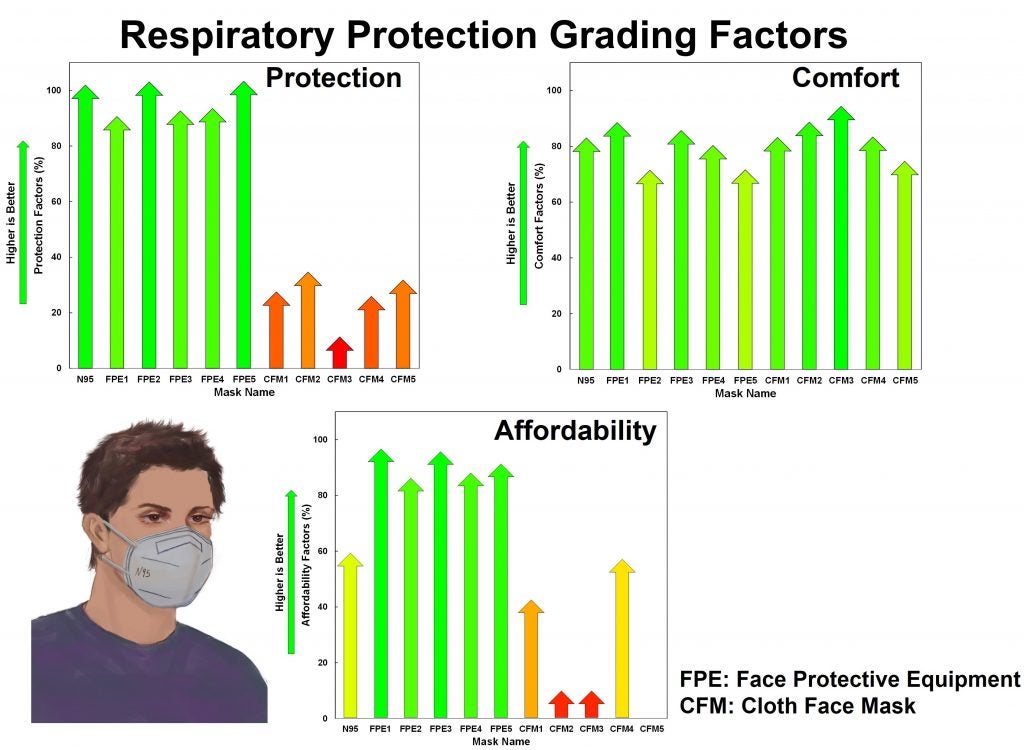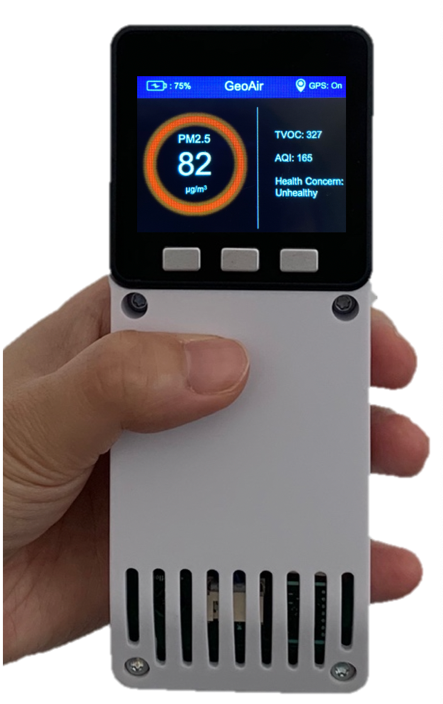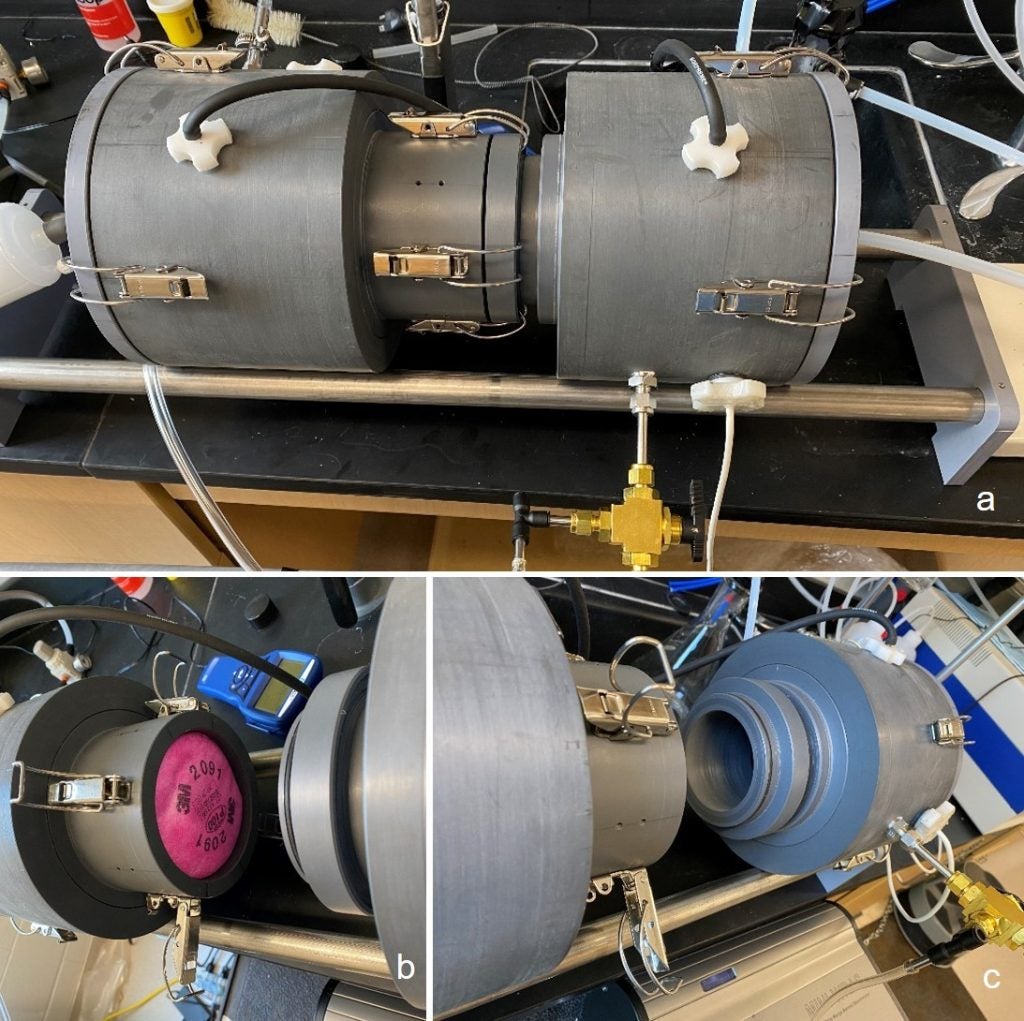
The work evaluates the ten best-selling respirators by the largest online retailer, Amazon.com. The paper introduces grading factors that could interest buyers and influence their decision to purchase respirators, including protection, comfort, and affordability.
Laboratory and Field Evaluations of the GeoAir2 Air Quality Monitor for Use in Indoor Environments

The paper evaluates the air quality monitor, GeoAir2, performance prior to citizen science research.
Increased JUUL Emissions from Initial Puffs after Removing and Reinserting Pod

The paper quantifies aerosol exposure of the popular electronic cigarette JUUL and demonstrates that real-life vaping behavior could generate more than ten times the aerosol exposure compared to standard puffing protocols.

The paper quantifies electronic cigarette aerosol exposure in laboratory settings and determines correction factors for real-time optical sensors that can be used for similar settings to estimate exposure in real-life scenarios.
Dr. Sousan’s COVID work was featured in several media outlets
WRIC 8 local news
ECU News
https://news.ecu.edu/2021/11/09/airborne-detection/
WNCT 9 local news
WITN local news
Blue Ridge Public Radio
https://www.bpr.org/post/testing-covid-19-hvac-could-be-future-surveillance-testing#stream/0
WRAL local news
New Publication: SARS-CoV-2 Detection in Air Samples from Inside Heating, Ventilation, and Air Conditioning (HVAC) Systems- COVID Surveillance in Student Dorms

- HVAC air sampling was performed in a multi-floor student dorm to detect SARS-CoV-2.
Three out of four air sampling methods with qRT-PCR analysis detected SARS-CoV-2. - We detected SARS-CoV-2 in multiple air samples and correlated with clinical testing.
- HVAC air sampling provides surveillance for subclinical COVID infection detection.
- HVAC air sampling may be used to prevent and control disease spread.
Graduate Degree Opportunity

New Publication: High-Frequency Assessment of Air and Water Quality at a Concentration Animal Feeding Operation during Wastewater Application to Spray Fields

Air and water quality at a concentrated animal feeding operation (CAFO) in Eastern North Carolina that uses a covered lagoon and anaerobic digester was evaluated for 2. After careful inspection of the data, the high PM2.5 concentrations were generated from the swine barns. In contrast, downgradient Dissolved Inorganic Nitrogen concentrations were higher than upstream values, possibly due to irrigation events
New Publication: Laboratory Evaluation of Low-Cost Optical Particle Counters for Environmental and Occupational Exposures

Low-cost optical particle counters effectively measure particulate matter (PM) mass concentrations once calibrated. Sensor calibration can be established by deriving a linear regression model by performing side-by-side measurements with a reference instrument. However, calibration differences between environmental and occupational settings have not been demonstrated. This study evaluated four commercially available, low-cost PM sensors (OPC-N3, SPS30, AirBeam2, and PMS A003) in both settings.
New Publication: GeoAir—A Novel Portable, GPS-Enabled, Low-Cost Air-Pollution Sensor: Design Strategies to Facilitate Citizen Science Research and Geospatial Assessments of Personal Exposure

The rapid evolution of air sensor technologies has offered enormous opportunities for community-engaged research by enabling citizens to monitor the air quality at any time and location. However, many low-cost portable sensors do not provide sufficient accuracy or are designed only for technically capable individuals by requiring pairing with smartphone applications or other devices to view/store air quality data and collect location data. This paper describes important design considerations for portable devices to ensure effective citizen engagement and reliable data collection for the geospatial analysis of personal exposure.
Publication in the Journal of American Society of Agricultural and Biological Engineers

The study was conducted at a farm in Eastern North Carolina to validate low-cost aerosol sensors for personal and area exposure measurements. The study was led by MPH graduate Justine Olegario in collaboration with MSEH graduate Swastika Regmi and supervised by Dr. Sinan Sousan. The study shows our MPH students’ learning ability to conduct hands-on field research, perform data analysis, and publish first-author peer-review papers in nine months. The study was made possible through North Carolina Agromedicine Institute’s partnership with farmers and funding this work. This work was also funded by ECU.
Publication in the American Journal of Infection Control

The study was initiated to immediately test an alternative fabric to replace the N95 respirator to protect healthcare professionals in a local hospital, considering the shortage of N95 supplies. A customized exposure chamber was used to measure the particulate respirator efficiency of NIOSH-certified respirators and homemade respirators. Custom-made respirators fabricated from Halyard® H600 sterilization fabric material were claimed as N95 alternatives with superior efficiency. The results indicated that the Halyard® H600 sterilization fabric has lower filter efficiency compared to P100 and N95, and is not recommended for use as an alternative for the N95 respirator.